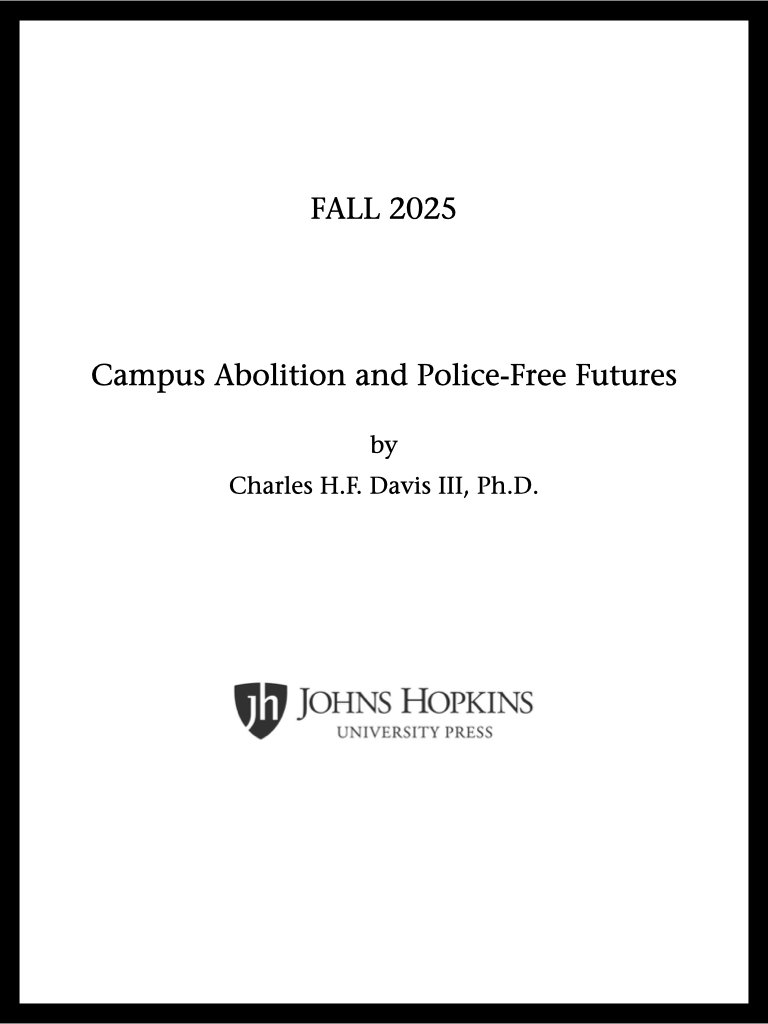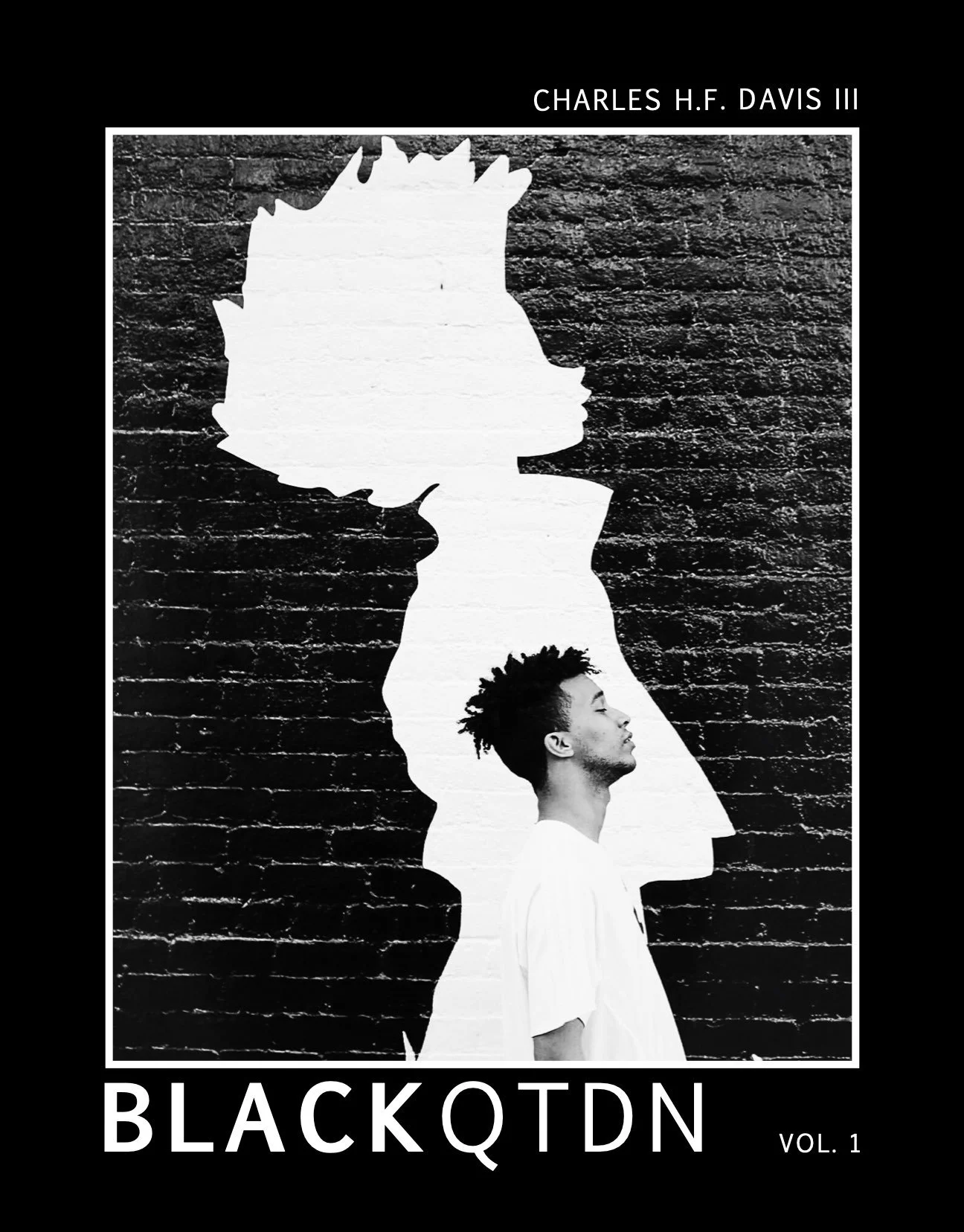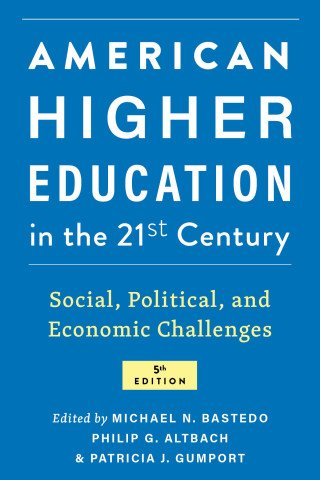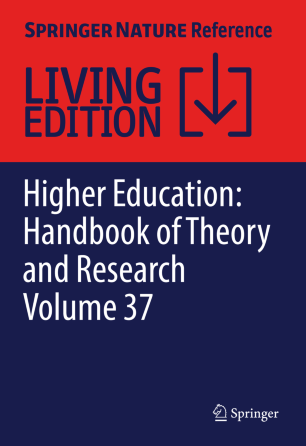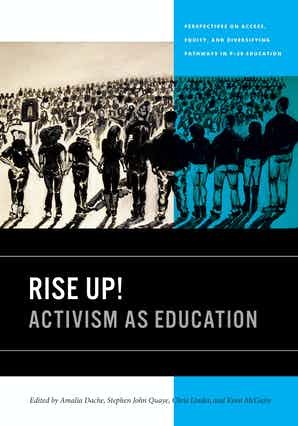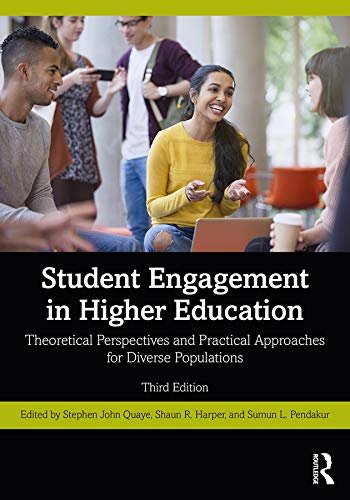Books
APA Citation: Davis III, C. H. F. (Forthcoming). Campus abolition and police-free futures. Baltimore: Johns Hopkins University Press.
Campus Abolition and Police-Free Futures (2026)
In the wake of national discourses about the future of policing, many colleges and universities are questioning their institutional relationship to municipal and campus police. As student activists have raised critical questions about campus police department budgets, hiring practices, and whether police are needed as first-responders on campuses at all, concerns about student safety, campus crime, and conjecture surrounding the universities’ inability to resolve crises if campus police structures are altered have guided institutional responses to growing criticism.
To address these and other related questions, Campus Abolition and Police-Free Futures (Johns Hopkins University Press) illuminates the longstanding relationship between higher education and the carceral state. Drawing on theories of racial capitalism and settler colonialism, the book argues that today’s colleges and universities are expanders of the carceral net through their over-reliance on police, extractive relationship to the public, and furtherance of the social and political conditions that necessitate policing and expand criminalization. The book concludes with a discussion of the conceptual underpinnings of abolitionist praxis and the growing social movement to reimagine higher and postsecondary education as a life-affirming institution.
APA Citation: Davis III, C. H. F. (2025) BLACK QTDN Vol. 1. Independent.
BLACKQTDN Volume 1 (2025)
/blæk/ /kwōˈtidēən/
BLACKQTDN Vol. 1 is Charles H. F. Davis III’s the debut photography book depicting the everydayness of Black life-making against the rising tide of an anti-Black world.
This volume includes digital and 35mm film photos taken between 2014 and 2016 in Los Angeles, Miami, New York, New Orleans, and Philadelphia. Select images from the Dominican Republic, San Juan (Puerto Rico), and Johannesburg (South Africa) are also included.
Closed edition, limited to 125 copies. Paperback, 60 pages (including covers).
APA Citation: Morgan, D. L., & Davis III, C. H. F. (Eds.). (2019) Student activism, politics, and campus climate in higher education. New York: Routledge.
Student Activism, Politics, and Campus Climates in Higher Education
Co-Edited with Demetri Morgan
Student Activism, Politics, and Campus Climate in Higher Education (Routledge) presents a comprehensive contemporary portrait of political engagement and student activism at postsecondary institutions in the United States. The current national narrative suggests that democratic participation and political engagement are at an all-time low, particularly related to voter turnout and other established and accepted ways of doing politics. In part, this has been attributed to growing ideological polarization in the public sphere as well as the ongoing disenfranchisement from traditional political processes. While often dismissed as apathy, especially in reference to millennial college-goers, contemporary college students participate in various forms of political action and dissent.
Book Chapters
APA Citation: Linder, C. ,Karunaratne, N., & Grimes, N. S. (2024). Thinking like an abolitionist to end sexual violence in higher education. New York: Routledge.
Thinking Like an Abolitionist to End Sexual Violence in Higher Education
By Chris Linder, Nadeeka Karunaratne, Niah S. Grimes
Foreword by Charles H.F. Davis III
This book brings abolitionist ideas into higher education contexts as a way to address the problem of sexual violence on college campuses. Despite college and university administrators spending millions of dollars each year to address sexual violence among students, rates of sexual violence have not budged. This cutting-edge book examines the histories of policies enacted to address sexual violence on campuses, drawing parallels between campus movements and mainstream feminist movements, describes contexts contributing to ongoing harm and violence among students with minoritized identities, and explores healing through community accountability processes. Thinking Like an Abolitionist to End Sexual Violence in Higher Education provides promising strategies for leaders in higher education to consider, including embracing mistakes, moving through fear, facilitating individual and collective healing, and employing transformative approaches to accountability. With suggestions for engaging in reflection and specific calls to action, practitioners, researchers, activists, educators, and policymakers alike will find this resource to be a transformative keystone text.
APA Citation: Roth, K., & Ritter, Z. S. (Eds.). (2021) Whiteness, power, and resisting change in U.S. higher education: A peculiar institution. New York: Palgrave Macmillian.
Whiteness, Power, and Resisting Change in US Higher Education: A Peculiar Institution
Edited by Kenneth Roth and Zachary Ritter
Foreword by Charles H.F. Davis III
This edited volume connects the origins of US higher education during the Colonial Era with current systemic characteristics that maintain white supremacist structures and devalue students and faculty of color, as well as areas of study that interrogate Whiteness. The authors examine power structures within the academy that scaffold Whiteness and promote inequality at all levels by maintaining a two-tier faculty system and a dearth of Faculty and Administrators of Color. Finally, contributors offer systemic and collective solutions toward a more equitable redistribution of power, primarily among faculty and administration, through which other inequities may be identified and more easily addressed.
APA Citation: Davis III, C. H. F., Morgan, D. L., & Cho, K. S. (2023) Contemporary student activism in higher education. In M. N. Bastedo, P. Altbach, and P. Gumport (Eds.) American Higher Education in the 21st Century: Social, Political, and Economic Challenges (5th. ed., pp. 207-234). Baltimore, MD: Johns Hopkins University Press.
Activism and Social Movements in College: Actors, Contexts, Tactics, and Strategies of Postsecondary Political Engagement
Co-Authored with Demetri L. Morgan and Katherine S. Cho
Across the long history of higher education, activism has played an integral part in the many reconstitutions of US postsecondary institutions, especially regarding greater access, equity, and inclusion for minoritized and marginalized communities. Most notable is the “golden era” of student activism, the 1960s, which continues to predominate the US social movements literature.. College and university activism during the late twentieth century, however, remained relatively understudied by comparison, especially within the formalized field of higher education. In this chapter we focus on three interrelated areas comprising the resurgent study of activism and social movements: movement actors, conceived both individually and organizationally, who participate in various forms of direct action; intra- and extra-institutional contexts in which activism and social movements occur; and the tactical repertoires (including strategies) undertaken by movement actors to transform postsecondary institutions and society. Altogether we conceptualize these areas as the actors, contexts, tactics, and strategies (ACTS) framework.
APA Citation: Davis III, C. H. F., & Stokes, S. (2023). Framing processes as student voice in the movement to resist university expansion and urban renewal. In J. Conner, R. Raaper, C. Guzmán-Valenzuela, C., and L. Gautier (Eds.), The Bloomsbury Handbook of Student Voice in Higher Education, pp. 183–194. London: Bloomsbury Academic.
Framing Processes as Student Voice in the Movement to Resist University Expansion and Urban Renewal
Co-Authored with Sy C. Stokes
Social movements are a critical component to addressing racial and other inequities across overlapping systems and structures of oppression. As Carter and Reardon (2014) have argued, various forms of inequity – and what is done in response to the presence of injustice – are often animating forces that help movements coalesce. Within the context of education, civic and political engagement takes many forms to include students’ participation in various dimensions of electoral politics, governance (i.e. local, state and federal) and policy arenas to improve access, opportunity and equitable educational outcomes. However, civic and political engagement are often too narrowly defined by these traditional domains and fail to account for student activism and social movements as legitimate forms of democratic participation (Morgan and Davis 2019). While historians of higher education have documented the presence of anti-gentrification activism on campus (e.g., Baldwin 2021; Puckett and Lloyd 2015; Wolf-Powers 2022), there are still considerable gaps in student voice research regarding these movements as important examples of how student organizers in collaboration with local communities can alter colleges’ and universities’ decisions in pursuit of their financial and property interests. In this chapter, we aim to address these gaps by delineating the inequities resulting from university expansion and urban renewal and the agentic role of student and community organizers to reduce harm and reimagine higher education as a life-affirming institution (i.e., campus abolition). In doing so, we take a multidisciplinary approach to frame an understanding of urban higher education’s complex relationship to the communities within which it is situated.
APA Citation: Rodriguez A., Deane K. C., Davis C. H. F. (2021). Towards a framework of racialized policymaking in higher education. In L.W. Perna (eds) Higher Education: Handbook of Theory and Research, vol 37. Springer, Cham. https://doi.org/10.1007/978-3-030-66959-1_2-1
Toward a Framework of Racialized Policymaking in Higher Education
Co-Authored with Awilda Rodriguez and K.C. Deane
From threatening protestors to cutting diversity office funding on college campuses, one contemporary brand of policymaking has overtly sought to undermine social justice efforts in higher education. Current popular policymaking theories, however, are inadequate to understand this phenomenon, as they undertheorize the role of racialized power in policymaking – e.g., the racialized network of policy elites and their core beliefs. In this chapter, we endeavored to bring together existing theory, research, and contemporary policymaking examples to offer a framework of racialized policymaking that explicitly describes the lack of progress for racial equity in higher education. We first frame policymaking in higher education as an unremitting contest between the maintenance or change of the racial status quo. We enumerate specific policy strategies – through either inaction or sanctions – that status quo policymakers use to stymie racial justice projects in higher education, and close with potential future directions for higher education policy research.
APA Citation: Davis III, C. H. F. (2019). Peer-pedagogies, communities of memory, and occupying the Florida Capitol. In A. Dache, S. J. Quaye, C. Linder, and K. M. McGuire (Eds.) Rise up! Activism as education (pp. 115-146). Lansing, MI: Michigan State University Press.
Peer-Pedagogies, Communities of Memory, and Occupying the Floria Capitol
Edited by Amalia Dache, Stephen J. Quaye, Chris Linder, and Keon McGuire
In this chapter, I describe peer educational approaches to teaching and learning (i.e., peer pedagogies) employed by the Dream Defenders during events that transpired during their thirty-one-day occupation of the Florida Capitol. Drawing upon resource mobilization/resource dependency perspectives, I conceptually frame the importance of members and tactical repertoires from an earlier student organizing collective with the origin story of the Dream Defenders. Specifically, I discuss the processes by which the latter organization used reflexive storytelling and participated in civic demonstrations (Davis III, 2015) to: 1) build solidarity, and 2) disrupt existing power relations between the state and youth of color.
APA Citation: Davis III, C. H. F., Stokes, S., & Morgan, D. Engaging student activists (2019). In S. J. Quaye, S. R. Harper, and S. Pendakur (Eds.), Student Engagement in Higher Education (3rd ed.) (pp.143-161). New York: Routledge.
Engaging Student Activists
Co-authored with Sy Stokes and Demetri L. Morgan
In this chapter, we contemplate higher education stakeholders’ understanding of con- temporary student activism and students as agents of social and institutional change. One notable difference from other student populations discussed in this book is the extent to which student activists are not necessarily defined by a shared social identity. Rather, in addition to who student activists are, which spans the entire spectrum of overlapping and intersecting identities, we posit student activists are primarily defined by their specific (and sometimes disruptive) political actions (e.g., campus canvassing, building or office occupation, and other forms of protest and demonstration), differentiating them from non-activist students. Such a distinction is an important one, in part, because engaging student activists contains layers of complication in which accounting for high levels of heterogeneity and interactional diversity are necessary. We revisit this action-oriented framing further in later sections of this chapter.

